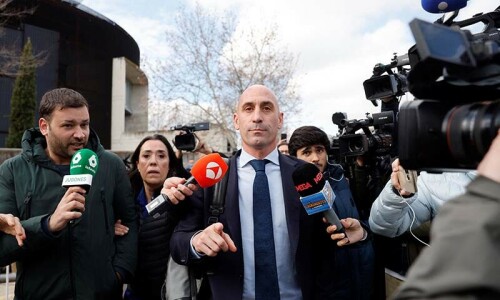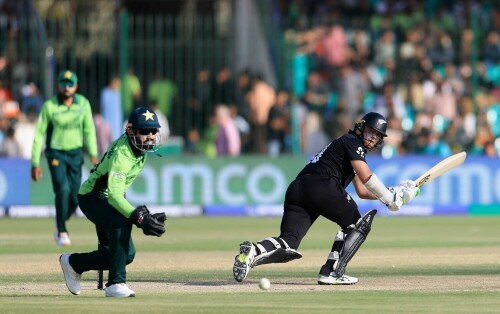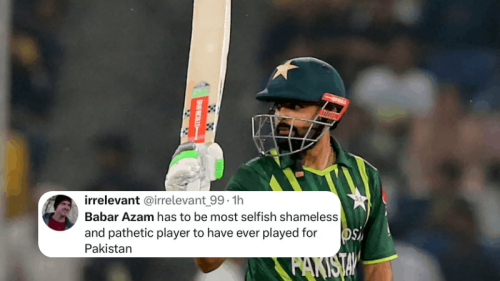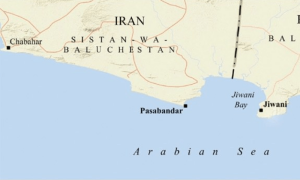“Disagreements have often occurred between the chief justice of India and the most senior judge of the court who, historically, have been unable to get along”. — Abhinav Chandrachud, Supreme Whispers.
THE recent controversy about the varying interpretations of the Judicial Commission meeting on July 28, 2022, for the appointment of judges, has given rise to a key question: what are the implications for the future of the judiciary when members of the Judicial Commission, composed of top judicial, executive and Bar officials, cannot even agree to a consensus interpretation of the decisions made at a Judicial Commission meeting? The implications drawn by various politicians, a politicised Bar and an ideologically divided media is that this is a battle between good and bad judges and that D-Day has arrived for the final judicial countdown. Are we on the brink of a judicial breakdown?
Implications and interpretations: An examination of the audio recording of the Judicial Commission meeting leads to the following interpretations and implications.
Firstly, despite serious differences between various members of the Judicial Commission and the meeting’s abrupt conclusion, the decency and respect shown by all its members, especially by the chief justice of Pakistan and Justice Qazi Faez Isa, towards each other is admirable. This gives us hope that despite disagreements, dialogue is still alive.
Secondly, judges and other top legal officials are human beings who suffer from the same weaknesses and have the same disagreements as other human beings.
As Abhinav Chandrachud in his study of the Indian supreme court, Supreme Whispers, notes “there have been several personal (sometimes petty) rivalries, jealousies and tensions between judges of the Supreme Court of India, apart from intellectual disagreements over ideology and substance”.
If other supreme courts have survived and functioned despite these conflicts, surely our judiciary should not be the exception to this comparative judicial trend.
Once trust breaks down, people revert to their own interpretational realities.
Thirdly, nobody really knows the magic criteria for the appointment of judges. In other words, how do you balance the criteria of ability, seniority, integrity, representation, temperament, judicial output and health in the appointment of judges?
Rules are necessary but not sufficient and only mutual respect leading to minimum trust, built on an agreed process of resolving disagreements, can resolve this issue.
Fourthly, publicity of this confidential meeting, through the release of audio recordings as well as letters written by various Judicial Commission members have revealed a positive and negative dialectic.
The positive side is that it has made these appointments more transparent and less secretive, which, for example, has vindicated judges like Justice Aqeel Abbasi of the Sindh High Court and Chief Justice Athar Minallah of the Islamabad High Court, for possible future appointment to the Supreme Court.
Read: Paterfamilias?
The negative side is that negative comments on a judge like Justice Shafi Siddiqui of the Sindh High Court is perceived to have hurt the reputation of one of our best judges.
Transparency is good but as Francis Fukuyama points out that too much transparency affects the freedom of speech by invading zones of privacy in which people speak and function freely. Both transparency and confidentiality have to be balanced in these Judicial Commission meetings in order to avoid demoralising judges of the high court who are not appointed and, at the same time, allowing judges to speak their mind during these meetings without fear of public disclosure.
Fifthly, it is difficult to decide whose interpretation of the Judicial Commission meeting is correct. A Judicial Commission meeting is a socially constructed fact and unlike natural facts, like seas or mountains, can be subject to conflicting interpretations.
For example, did Attorney General Ashtar Ausaf, the swing vote among the nine members of the commission, agree to defer the meeting or did he reject the nominations of the chief justice? Apparently, he made conflicting statements during the meeting. Once trust breaks down, people revert to their own interpretational realities.
Possible judicial futures: Neither rules nor one group of judges winning this judicial struggle will resolve such key issues like the constitution of benches, assignment of sensitive cases, exercise of jurisdiction under Article 184(3) and criteria for appointments to the Supreme Court. The key lies in agreeing to the institutional process to resolve these issues. The Constitution of 1973 and the rules made under it regarding these issues provide only minimum criteria for the resolution of these complicated issues.
The institutional mechanism, which is both democratic and transparent, to debate and resolve these issues is a full court administrative meeting of all the serving judges of the Supreme Court. We must tap, trust and depend on the collective wisdom of the Supreme Court judges expressed through a full court meeting. The advantage of such collective wisdom is that it facilitates compromise (sometimes consensus) and ultimately, judges accept the decision of such collective wisdom regardless of their deeply held personal positions.
As far as the Judicial Commission is concerned, the collective views of such a full court are not legally binding but it will be difficult for the commission not to benefit from the collective wisdom of the Supreme Court.
The alternative of not agreeing to an institutional process to resolve these issues should also be kept in mind: if trust and respect among Supreme Court judges completely breaks down, constitutional disaster occurs and we end up with the events of 1997, when outside forces exploited this mistrust, physically attacked the Supreme Court and led to a Supreme Court which had parallel benches passing restraining orders against each other.
The future of the judiciary lies in the hands of our present Chief Justice of Pakistan Umar Ata Bandial, and the future chief justice of Pakistan Justice Qazi Faez Isa. I cannot think of two better CJPs to lead this institution if only their judicial legacy, and not their immediate power positions, is the focus of their attention.
If Willem de Klerk and Nelson Mandela, despite their deep differences and deep mistrust, could resolve the intractable problems of apartheid, surely our judicial disagreements should be a walk in the park.
The writer is a lawyer.
Published in Dawn, August 12th, 2022











































